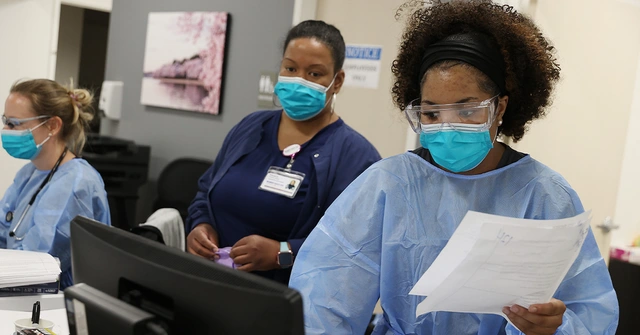Exploring the Pros and Cons of a Completely Private Healthcare System in the United States
The concept of a completely private healthcare system in the United States has been a point of contention for years. Proponents of such a system argue that it would be more efficient, cost-effective and that it would offer people more choices. On the other hand, opponents of the idea claim that it would lead to increased healthcare costs, diminished quality of care, and decreased access for those who cannot afford it. In this article, we will explore the pros and cons of a completely private healthcare system in the United States.
Pros
The first major benefit of a completely private healthcare system is that it would offer much more choice to consumers. With private healthcare, people would be able to select between various insurance plans that meet their needs. Furthermore, they would be able to choose their own doctor, hospital and other healthcare services. This means that people could choose the highest quality care available to them.
Another major benefit of private healthcare is that it would be more cost-effective. Without the need for government subsidies, private healthcare providers would be able to offer more competitive prices. This would mean that people would be able to access the care they need without having to pay exorbitant amounts of money for it. Additionally, private healthcare providers would be more likely to invest in new technology, which could result in better care.
Cons
The first major downside of a completely private healthcare system is that it would be much more expensive. Without government subsidies, healthcare providers would need to charge higher prices in order to make a profit. This would mean that many people would be unable to access the care they need due to the high costs. Additionally, it could lead to a rise in medical bankruptcies and increase the number of uninsured individuals.
Another major issue with private healthcare is that it would lead to a decrease in quality of care. Private companies would be more focused on making a profit than providing quality care. This could lead to a decrease in the quality of care and an increase in medical errors. Moreover, private healthcare providers would be more likely to deny coverage to those with pre-existing conditions, which could further limit access to care.
What Would a Completely Private Healthcare System Look Like in the United States?
A completely private healthcare system in the United States would look very different from the current system. Instead of relying on government funding and insurance, patients would rely on their own resources to pay for medical care. Healthcare providers would be in competition with one another, offering different services, prices, and quality of care.
Patients would have a much wider range of choices when it comes to choosing a healthcare provider. They would be able to compare prices, services, and quality of care offered by different providers. Prices would be determined by supply and demand, with providers competing for customers. This competition would help to keep prices down and quality of care up.
Patients would also have the freedom to choose their own care plan. They could choose a plan that best fits their needs and budget. They could also choose to pay out-of-pocket for medical services if they did not have insurance. This would give patients more control over their healthcare decisions.
There would also be an increased focus on preventive care. Under a private healthcare system, providers would be incentivized to keep people healthy. This would be done by offering preventive services, such as screenings and vaccinations, that would help people avoid costly medical treatments down the road.
Finally, there would be more accountability in the system. Patients would be able to hold providers accountable for their actions and receive compensation if they were not satisfied with the care they received. Healthcare providers would also be required to adhere to certain standards of care in order to remain in business.
Examining the Impact of a Completely Private Healthcare System on Access to Quality Care in the United States
The debate over whether healthcare in the United States should be completely private or public has been ongoing for many years. Proponents of a private healthcare system argue that it would provide greater access to quality care and improved patient outcomes. However, opponents of such a system argue that it would leave many Americans without access to healthcare, particularly those with limited financial means.
One of the most significant impacts of a completely private healthcare system on access to quality care in the United States would be the increased cost of healthcare. With insurance companies able to demand higher premiums and co-pays, healthcare would become increasingly expensive. This could lead to many Americans having to make difficult decisions about whether or not to seek medical care due to the cost.
Another impact of a completely private healthcare system would be increased inequality in access to quality care. Those with the financial means would be able to access the best care available, while those with limited resources would be left with substandard care or no access to care at all. This could lead to increased health disparities across different socioeconomic classes.
A third impact of a private healthcare system would be the potential for providers to engage in price gouging. Without government regulation, insurance companies and providers could charge whatever they wanted for services. This could lead to an increase in healthcare costs and leave many Americans unable to access the care they need.
Finally, a completely private healthcare system could lead to a decrease in health outcomes. With insurance companies able to cherry-pick the healthiest individuals, those with pre-existing conditions may not be able to access the care they need, leading to poorer health outcomes. This could also lead to an increase in medical bankruptcies as individuals struggle to pay for care.
In conclusion, while a completely private healthcare system could lead to improved access to quality care for some, it could also have a negative impact on access to care for many Americans. The increased cost of care, increased inequality in access to care, potential for price gouging, and decreased health outcomes could all lead to an overall decrease in access to quality care in the United States.


